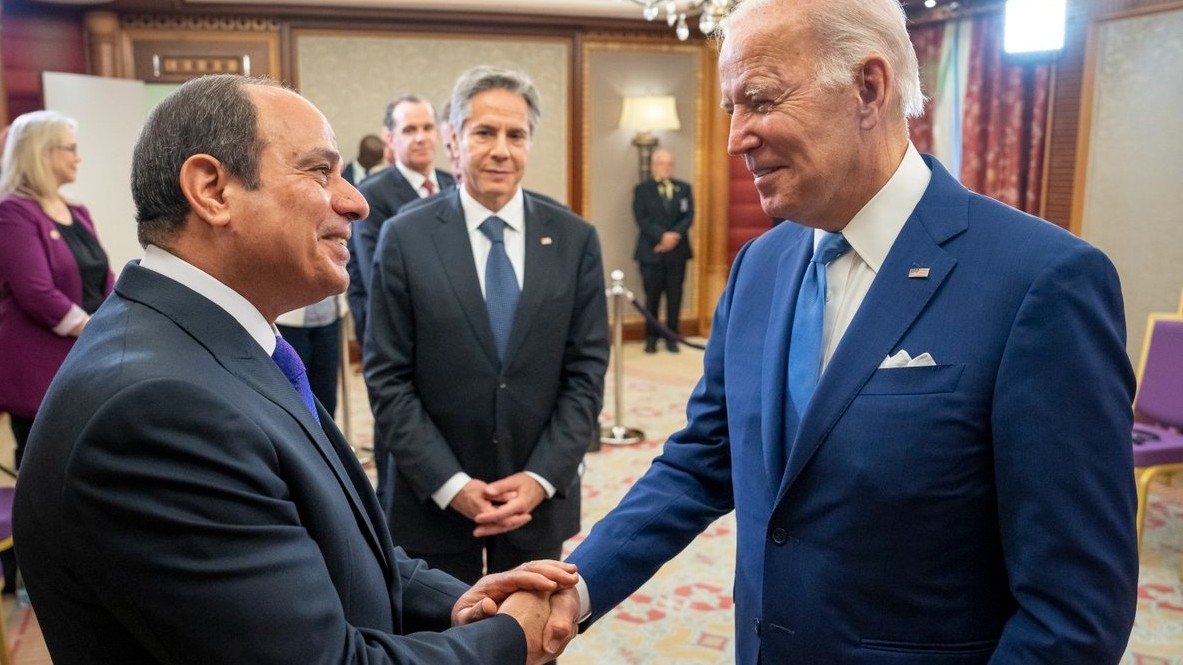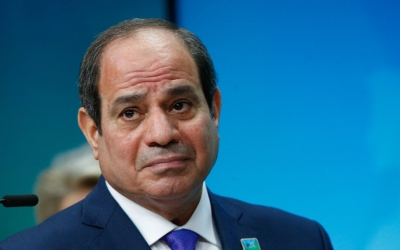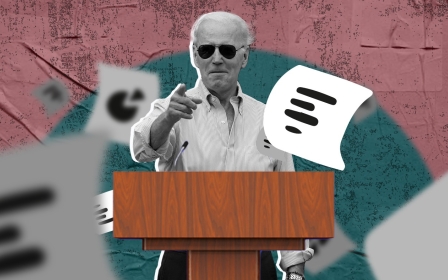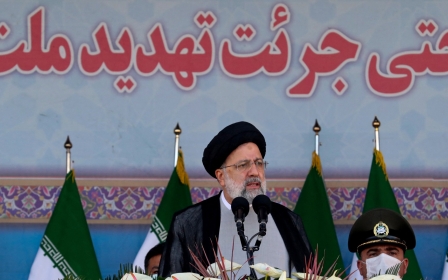When Biden met Sisi: The US soft spot for Egypt's dictator

In November 2019, Joe Biden, then the Democratic presidential nominee, promised that Saudi Arabia would “pay the price” for the murder and dismemberment of American resident and journalist Jamal Khashoggi. He also said he would, in the event of his electoral victory, make Saudi Arabia a “pariah” state and not sell “more weapons to them".
Last week, Biden met in Jeddah with Saudi Arabia Crown Prince Mohammed bin Salman, who, according to US intelligence and a wide international consensus, ordered the hit on Khashoggi. In recent days, much has been made of Biden’s about-face, and a number of American analysts have excoriated Biden over his meeting (and fist bump) with Bin Salman.
Much less has been made, however, about other Biden statements and positions vis-a-vis a different Arab dictator, Egyptian President Abdel Fattah el-Sisi.
The 'favourite dictator'
Sisi was a friend of Biden’s predecessor, Donald Trump, who reportedly hailed him as his "favourite dictator". In July 2020, Biden tweeted that there should be “no more blank checks” for Sisi.
New MEE newsletter: Jerusalem Dispatch
Sign up to get the latest insights and analysis on Israel-Palestine, alongside Turkey Unpacked and other MEE newsletters
In late 2020, there was reportedly considerable angst in Cairo about Biden’s electoral victory. Multiple credible reports indicated that Egypt hired an expensive US-based lobbying firm in order to deal with the possible ramifications of a Biden presidency.
But Biden has contradicted himself on Egypt, just as he has done on Saudi Arabia.
Although the Biden administration announced in January 2022 that it would withhold, on human rights grounds, a small portion of Egypt’s annual aid package, American aid has effectively continued without change. Also, in February 2022, Biden approved a large weapons sale, valued at $197m, to Egypt.
The continuation of aid and weapons sales provide clear signals that the Biden administration intends on doing business as usual with Egypt. Just as with Saudi Arabia, then, the Biden administration is, with Egypt, choosing to value “American strategic interests” over concerns about basic human rights and the rule of law.
All of this represents a victory for Sisi, who has likely interpreted Biden’s actions, as well as his inactions, as a green light to continue policies of extrajudicial killings, arbitrary detentions, mass trials, mass death sentences, torture, and systematic intimidation of media workers, among other abuses.
A political victory?
Egypt was not a focal point of Biden’s Middle East visit, and the American president did not visit Cairo.
This represents a far cry from 2009, when newly inaugurated US President Barack Obama chose Cairo, out of all the cities in the Muslim-majority world, as a platform from which to address the global Muslim community.
Egypt was, however, represented at last week’s meeting in Jeddah, something which Sisi also likely interpreted as a political victory. At the Jeddah summit, Sisi was able to meet personally with Biden for the first time.
What matters for Sisi, is that Biden’s outward endorsements of him - represented in military aid and diplomatic inclusion - represent a political victory
More importantly, perhaps, he was provided the opportunity to deliver a 15-minute address to Biden and other attending leaders. Saudi leadership would likely not have provided a platform to Sisi if the US did not approve.
Sisi used his 15 minutes to present what he referred to as Egypt’s five-point vision for facing regional challenges.
Predictably, the speech highlighted “extremism” and “terrorism”, which Sisi has, since the start of his rule, used as justifications for his consolidation of power, policy of eliminationism, and broad programme of human rights abuses.
Sisi also highlighted national independence, noting that interference in the internal affairs of individual countries should not be tolerated. This remark was a likely reference to widespread international condemnation of Egypt’s human rights record.
In the past, the Sisi regime has objected to what it considers “fake news” about regime abuses, something which the regime regards as a type of interference into its internal affairs. The interference comment may also have been a reference to the murder of Khashoggi by Saudi leadership, whom Egypt has been supporting and protecting.
During his speech, Sisi also argued for the necessity of international cooperation on issues related to food supply, energy, climate, and water. The remark on water was a not-so-subtle reference to Egypt’s ongoing, partly self-induced Nile water crisis.
Multiple crises
Sisi’s inclusion at the summit, then, probably signals that the American administration continues to value Egypt as a strategic partner and important ally.
This is consistent with Biden’s rhetoric and action since taking office in January 2021. In an op-ed published earlier this month, Biden specifically mentioned Egypt in the context of counterterrorism and the Israel-Palestine conflict.
The US has long viewed Egypt as significant on both fronts. Biden has made it clear that he sees Egypt as important to counterterrorism efforts, and that he values Sisi’s role in mediating between Palestinians and Israelis. A strong case can be made that Biden’s perceptions of Sisi’s value are out of step with reality.
But this is beside the point.
What matters, at least for Sisi, is that Biden’s outward endorsements of him - represented in rhetoric, military aid, weapons sales, and diplomatic inclusion - represent a clear political victory.
In the grand scheme, however, this political victory may be a small one for Sisi, who is dealing with multiple crises at home. Sisi’s tenure has been characterised by near-complete military dominance over the economy; widespread corruption; and ill-advised economic decision-making.
Poor economic planning has been marked most prominently by a new administrative capital project that has cost the nation billions of dollars, and a Suez Canal expansion that has failed to generate anywhere near the revenue Sisi promised it would.
As Sisi has squandered funds on ill-conceived projects, the Egyptian pound has plummeted and inflation has ravaged the economy. Meanwhile, Sisi’s economic strategy of excessive borrowing has led to a crippling national debt crisis. A multitude of experts have warned that Egypt’s economy could be on the verge of collapse.
Sisi himself has spoken recently about the need for Egyptians to survive on less, reminding his audience that the Prophet Muhammad and his companions ate leaves to endure hunger. Sisi also continues to deal with the ramifications of a pending water crisis resulting from his passivity vis-a-vis the Great Ethiopian Renaissance Dam, which will cost Egyptians important access to Nile water.
Parts of Sisi’s speech can be seen as a subtle call for help. His next play may be to explicitly ask his friend Biden for additional favours.
The views expressed in this article belong to the author and do not necessarily reflect the editorial policy of Middle East Eye.
Middle East Eye delivers independent and unrivalled coverage and analysis of the Middle East, North Africa and beyond. To learn more about republishing this content and the associated fees, please fill out this form. More about MEE can be found here.






